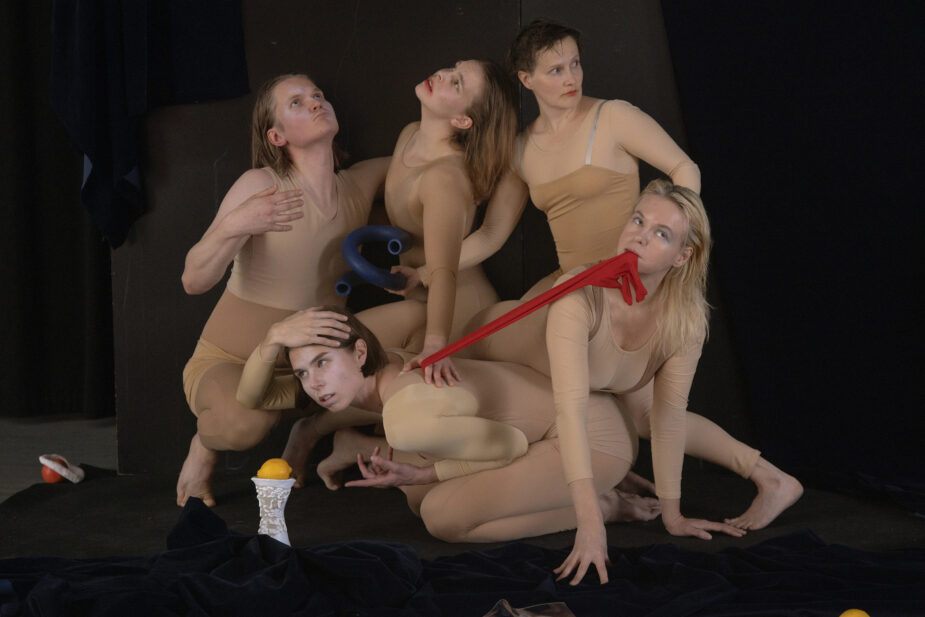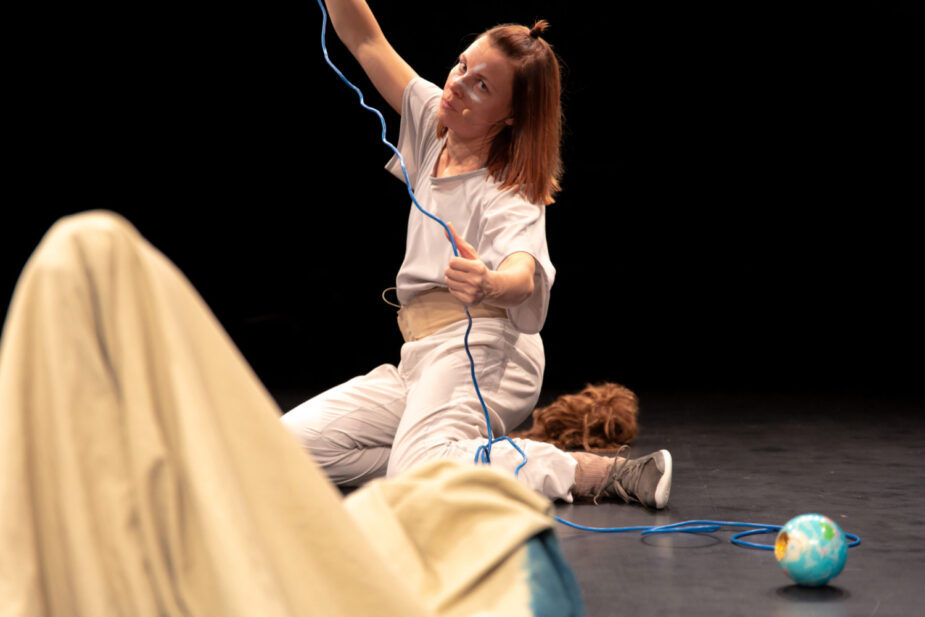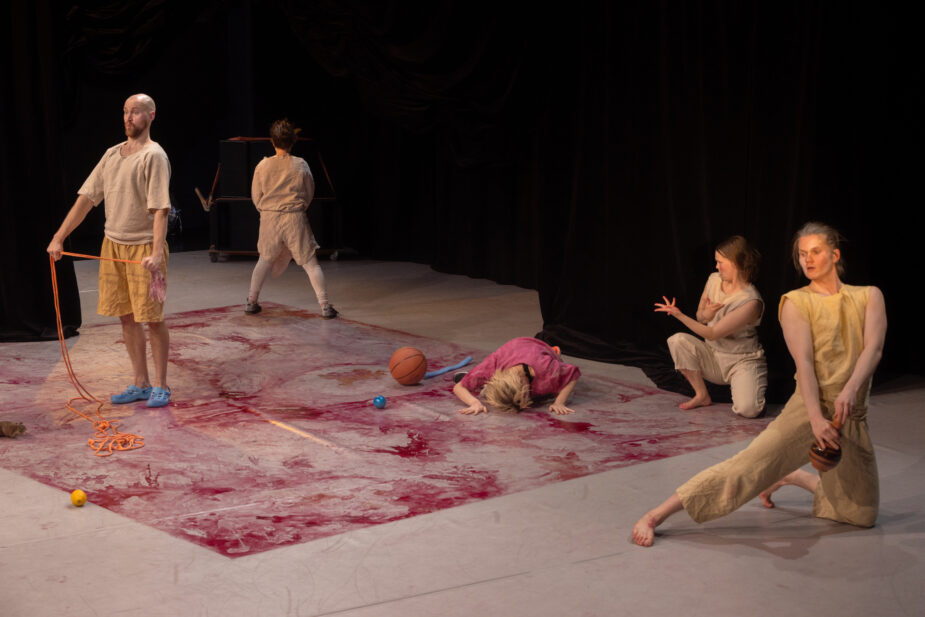Zodiak – Center for New Dance has been a key player in the development of Finnish contemporary dance since 1986. In February 2023, choreographer Jenni-Elina von Bagh took over as its artistic director. In this article she talks about posthumanism on stage.
Text: Minna Tawast | The article was originally published in Finnish Dance in Focus magazine 2023.
As a choreographer, Jenni-Elina von Bagh has created a language for contemporary performance, which attaches to the many practices and dramaturgical means of contemporary dance and performance. In curating, she seeks radical new thinking in forms that are also of interest outside the art community.
In the latest issue of Finnish Dance in Focus magazine, von Bagh talks about posthumanist thinking on the stage.
Posthumanist thinking, which spread more widely into the performing arts in the 2010s, can be seen in many ways in artists’ work. Criticism of the privileged position humans occupy, both intellectually and legally, and thinking about ‘a post-human age’ has inevitably influenced artists’ self-image and work in a variety of ways.

“A tree stump on a stage creates a powerful experience”
Choreographer Jenni-Elina von Bagh considers the relationship between identity and posthumanism an interesting issue – what kind of change does it require to your whole lifestyle as a dance artist, human, or mother.
In von Bagh’s view, the concept of posthumanism as a general ‘time after anthropocentrism’ and as seeking a connection with nature is not a theoretical issue at all, but rather an experiential one.
“When it comes down to it, dance dismantles the mind-body dichotomy. And that’s already posthumanistic. But I have a fairly solid background in Deborah Hay’s practice, where the dancers are continuously attentive to what they are experiencing physically. It’s a background that is difficult to shut off. I’m interested in questions like whether you can perceive in a way not based on the human body, looking again at the relationship with perception. I’m curious about how the concept, used in a philosophical context, converts to the stage.”
Von Bagh talks about ‘converting’, how linguistic-discursive portrayal becomes compositional, how the relationship between the elements of the composition – the movement and the bodies and the items in the performance space, props, etc. is broached. The relationship with materials is, thus, important.
“I rarely have living creatures other than humans in my pieces. Once, I used a worm – keeping it alive was no mean feat. We’ve also used living bacterial cellulose and the outfits for Void – A Psychodrama (2022) featured a biological colour pigment that changed as time passed. These kind of fancy details.”
Von Bagh explains that, for example, a tree stump on a stage creates a powerful experience.
“The stump is, at the same time, an unknown element. The body’s relationship with any object is very relevant. Who is observing whom? Is this plate observing me or am I observing it? Or, what is our relationship and how does it change?” the choreographer says, laughing at her example.
“In performance situations, people’s eyes are drawn to human forms that look like themselves”
Is it also a question of ethics? “Yes, it is. But in such a way that I want to put humans’ agency, their truism, under the magnifying glass. I don’t, as such, have a view politically or ethically on who the subject is and who the object is. It’s more a question of being open, noticing that we are sharing space with these materials. It is meaningful to me that the relationship is rich and valuable.”

The staging, ensuring that people are not at the centre of everything, is challenging.
“In performance situations, people’s eyes are drawn to human forms that look like themselves, and breaking that habit is difficult. But it is possible for the viewer’s attention to not be on a person all the time. When I created my solo piece, A Prologue (2020), refocusing the audience’s attention was a real problem. I found myself thinking ‘Do I need to leave the stage in order for you to get your attention off me?'”
“It’s interesting to invite the audience to look at something else. At the same time, I’m interested in the convergence of the body or its parts with an object. A pen in a hand forms a new entity. Where do the boundaries of the pen and hand go?” asks the choreographer, twisting the hand holding the pen into different positions.
Philosophical and posthumanist thinking also affect how von Bagh works. However, sometimes this is challenging, as we live in a production-centric environment where both time and money are scarce.
“How I listen to a designer, for example, and how I let their work happen – that’s something I’m always practising. I cannot take full control or make decisions alone. It is a bit like dancing with peoples’ idiosyncrasies.”
—
Jenni-Elina von Bagh’s new piece As time goes by will be performed at Zodiak – Center for New Dance 11 – 24 May.
